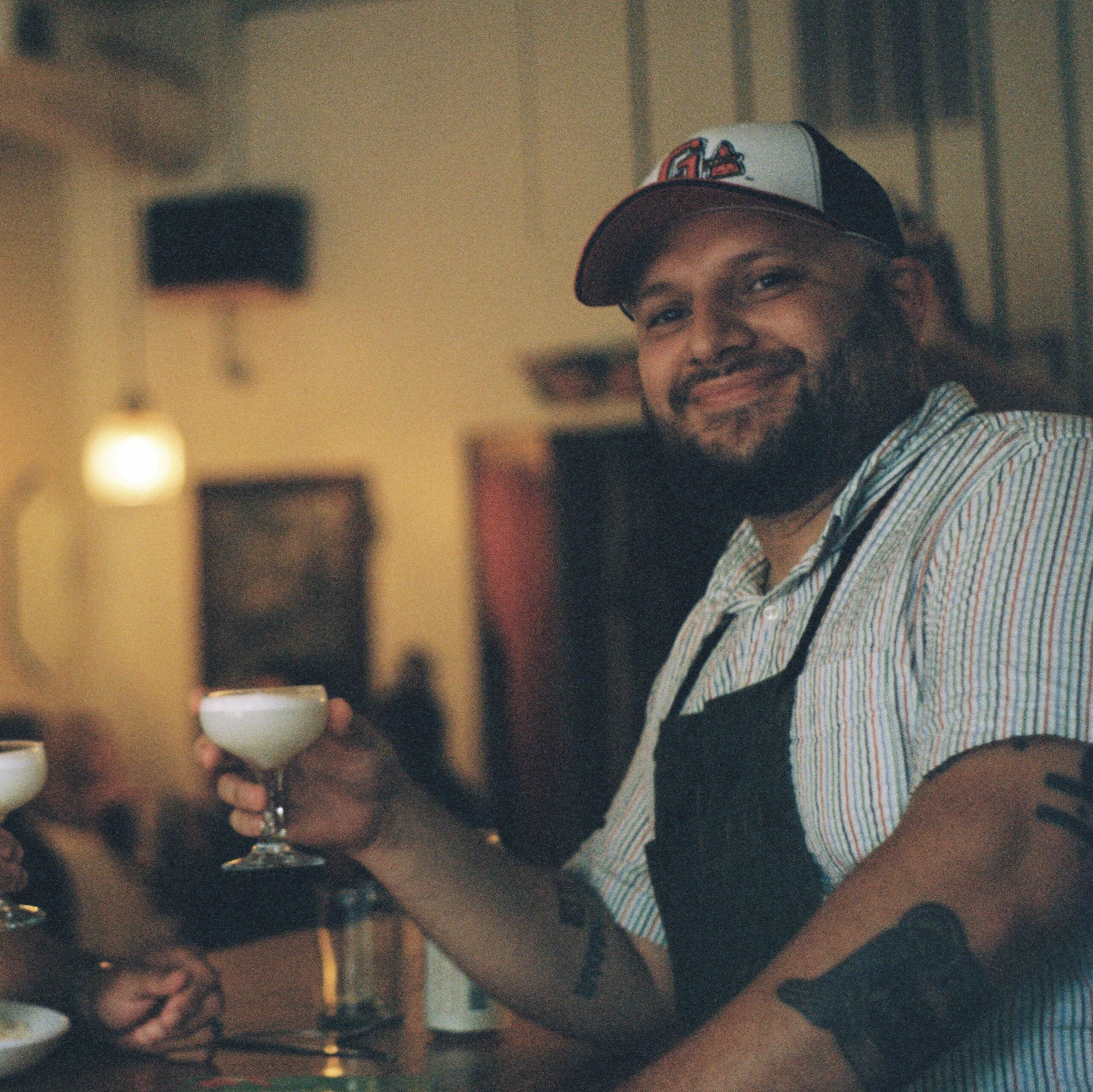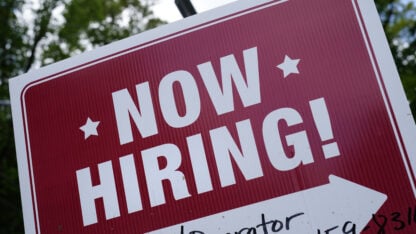Arnaldo Castillo has been serving delicious flavors from Latin American regions for years, all over Atlanta. Formerly the executive chef for Ponce City Market’s Minero restaurant, Castillo also cooked for Little Trouble and Empire State South. His new pop-up, La Chingana, serves Peruvian cuisine traditional to his own family’s background. His family is from Lima and regions of northern Peru, and Castillo’s food is served alongside stories from his family tradition. He joined “City Lights” senior producer Kim Drobes via Zoom to talk about La Chingana and the traditions that inspired his cuisine.
Interview highlights:
The life that led to La Chingana:
“I was born in Peru, in Lima, in the early 90’s. There was a lot of domestic terrorism happening in Lima, and the economic situation, the political situation, was really tough on our family, and… my family decided to move the States,” said Castillo. “It was when I finally got to the States and was able to observe how my dad was working, and his love for Peruvian food, and I just kind of fell into that, you know?”
“My parents eventually had this home business, and they were basically making food for all the Peruvians in Gwinnett…. So we were known in the little small Peruvian community as the family that would cater and provide Peruvian food for people, and so that was an interesting experience for me, because growing up, I never saw myself as wanting to be a chef or a cook – I just naturally fell into it.”
“The ‘La Chingana’ name is actually from the colonial times, and it was sort of like a speakeasy…. I’ve always appreciated the past, and I’ve always been drawn to it,” said Castillo. “It helped define what we were, which was, you know, we don’t have a face yet. We’re working towards having a brick and mortar, but for now, we’re just a hole in a wall.”
On bringing cuisine concepts from Peru into Atlanta’s food culture:
“I want to share Peruvian food with Atlanta, and do it in a way that’s sustainable and modern and fresh,” said Castillo. “I want to take the experiences that I got from working in all these fine dining establishments, and casual establishments, and come up with a model where the food is going to be approachable and sustainable – meaning that we’re going to work with as many local purveyors and farmers to introduce Peruvian food in a way that also intersects with our region, you know? Like, what does Peruvian food look like in the South?”
“We always end our meals on a sweet note, and my girlfriend, Julie, is from Georgia…. What does a Peruvian dessert look like when we start incorporating her background and her culture into it? And then we’ll come up with, for example, one of our dishes [was] mazamorra arroz con leche, which is a very typical Peruvian dessert, which is rice pudding, and this pudding made with purple corn,” Castillo described. “We were like, how can we present it in a way that will be approachable for people? ….Well, why don’t we make the rice pudding into an ice cream, and we’ll make the purple corn pudding into a sort of cobbler situation?” He added, “It’s Peruvian, but it’s influenced by where we are.”
“[Peruvian cuisine] is fresh and vibrant, and spicy from the aji’s, and the seasonings are all these, what you’d categorize as warm spices – because we use a lot of cloves and cinnamon and cumin. It’s rich and hearty food, and I like to say it’s soul food,” said Castillo.
How Castillo used his restaurateur skills to help immigrant communities in the pandemic:
“We closed [Minero] down for a few months while the pandemic was at its height last year. And talking to a buddy of mine who’s a chef as well, in the city, we were trying to help out some of the marginalized communities – specifically the undocumented workers in the restaurant industry,” said Castillo. “I knew that I was lucky, that I knew that I had a stimulus check coming…. I decided to take that money that was going to come from the government and use it to purchase supplies and ingredients, and make dishes that we would sell, and then we would take that money and help out these families that were struggling to pay their bills, pay their rent, etc.”
“The next time we did something was for Cinco De Mayo, and my partner is a nurse in one of the local hospitals… I was like, what can we do to make this Cinco De Mayo be a little bit better for people? Because honestly, it sucked for all of the restaurant workers,” said Castillo. “I reached out to [Minero] and explained a plan, and they were on board… We were able to raise enough money to provide food for sixty nurses and doctors. And I thought that was a very neat thing to do, and I was happy we were able to accomplish that.”
Prospective diners can keep an eye on La Chingana’s upcoming events on Instagram.






